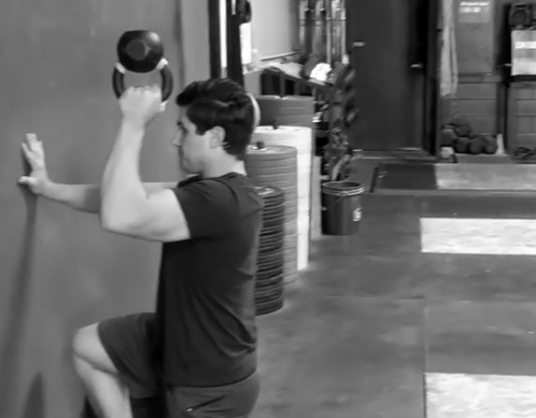What is Your Rotator Cuff and Why is it Important?
We’ve all likely either had ourselves, or known someone that has had, rotator cuff strains, rotator cuff impingement, or rotator cuff tears. As common as it is, most do not know what the rotator cuff is or why it is so important for the shoulder. Rotator cuff strengthening exercises are important whether you’re rehabbing back from pain or injury, trying to improve performance in sport or in the gym, or just looking for mobile and healthy shoulders.

The rotator cuff consists of four muscles that run from your scapula (shoulder blade) and attach onto your humerus (upper arm). These muscles actively help the arm to rotate, but they also play a big role in stabilizing the shoulder. The shoulder joint is the most mobile joint in our body, and with great mobility comes great responsibility. The more mobile a joint, the more your body relies on surrounding musculature to support the joint.
To clarify, the rotator cuff alone is not responsible for strong and healthy shoulders. These muscles are much smaller than some of our bigger surrounding musculature (lats, pecs, deltoids, triceps, etc.). While the small muscles play a direct role, all muscles around the shoulder need to be working correctly for healthy shoulders. On top of the muscles working correctly, the joints surrounding also have to have good mobility and proper movement. That is why an individualized assessment from a skilled movement practitioner is always recommended if you’re dealing with pain or injury.
Assuming your shoulders are already healthy and that your mobility is not an issue, then strengthening the rotator cuff can have some great benefits. This is especially true for the overhead athlete (baseball, softball, volleyball, swimming, etc.) as well as the fitness athlete and weightlifters that do a lot of heavy overhead lifting.
Exercises to Strengthen Your Rotator Cuff
Below are some of our favorite variations for strengthening different areas of the shoulder, specifically the rotator cuff. With all of these movements, how you do them is more important than how much resistance or repetitions you are performing. Always focus on form first, if you’re not sure how to perform them correctly make sure you see a skilled movement practitioner. A slight tweak in your technique with an exercise can greatly change the effectiveness of the movement. Here are some of our favorite rotator cuff exercises:
3 Way Rotator Cuff Strengthener
The key for this one is to go light, but to keep tension on the shoulder throughout the entire movement. Try to avoid letting the shoulder shrug up towards the ears with each movement.
Prone Retraction, External Rotation, Flexion with Bench
Same focus as above exercise
Emphasize the retraction (squeezing shoulder blades back) before initiating the movement. Try to avoid letting the shoulders shrug up towards the ears.
Banded Face Pull, External Rotation, Flexion
Banded PNF Diagonal Patterns
Use a band that’s light enough that you do not find yourself shrugging your shoulder at the top of the movement.
Kettlebell Screwdriver and Bottoms Up Variations
Start light and work through the full range of motion. Focus on keeping the kettlebell in a direct line over your shoulder. Keep shoulder pulled away from your ear and try to keep everything as still as possible. No dropping any weights on your face, please.
Half Kneeling Bottoms up Kettlebell Press
Push into the wall with your hand to help stabilize your core. Keep your core tight and braced as you press overhead.
We don’t give any thought to our rotator cuff when it is working correctly.
However, when it’s not, this can cause all sorts of pain, limited mobility, and limitations with your workouts and the activities you love most. We see people every single day that have been putting off these activities for weeks, months, or even years due to pain or a fear of further injury. While this is common, this is by no means normal.
We help people just like you get back to all the activities you love safely and effectively for years to come. Don’t let a fear of injury or pain hold you back, contact us today to speak with one of our Docs to get back to the activities you love most.

